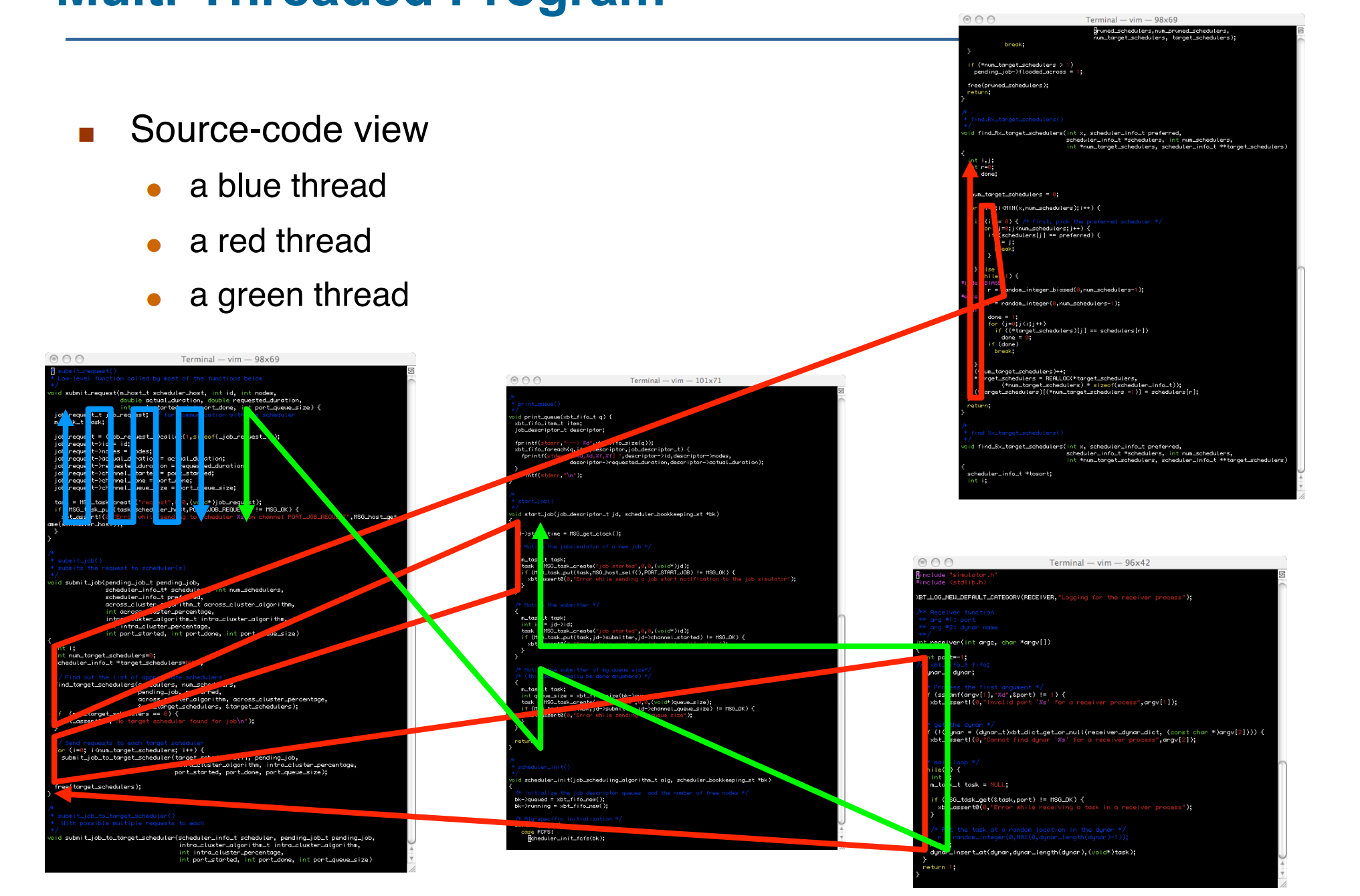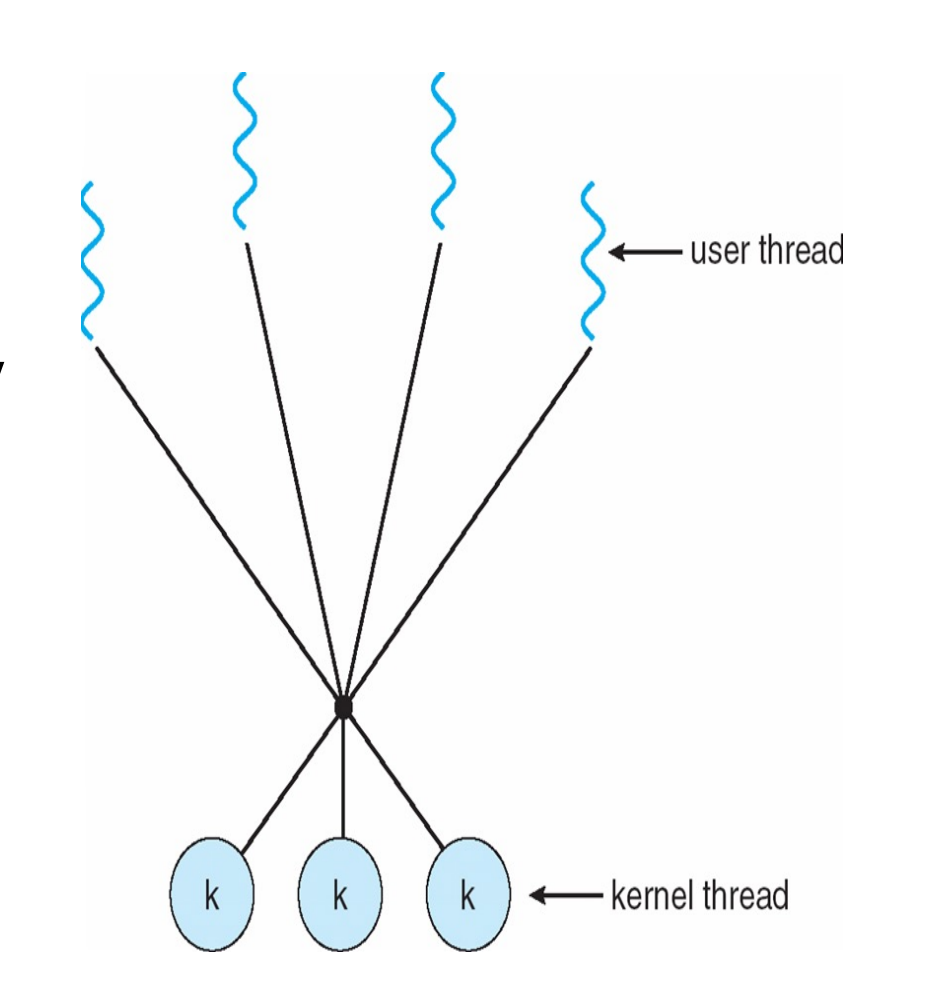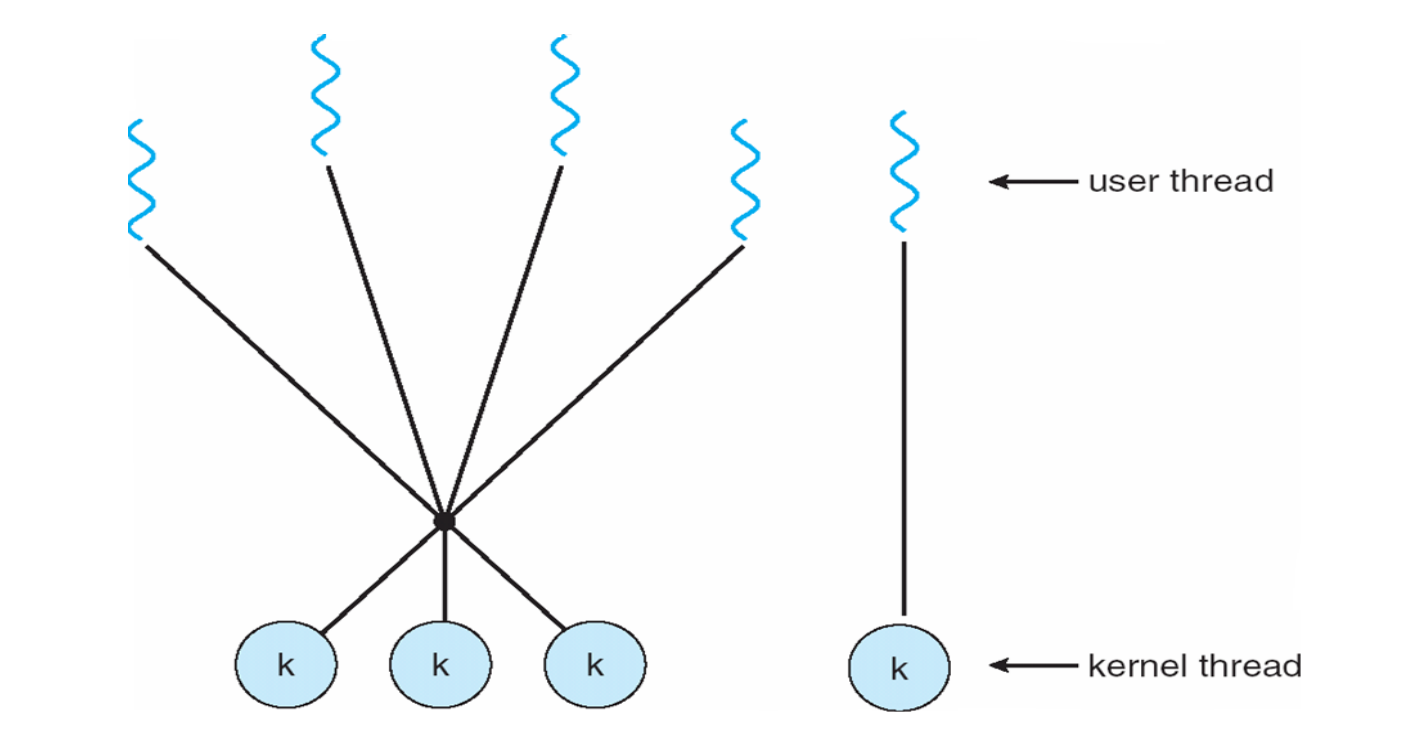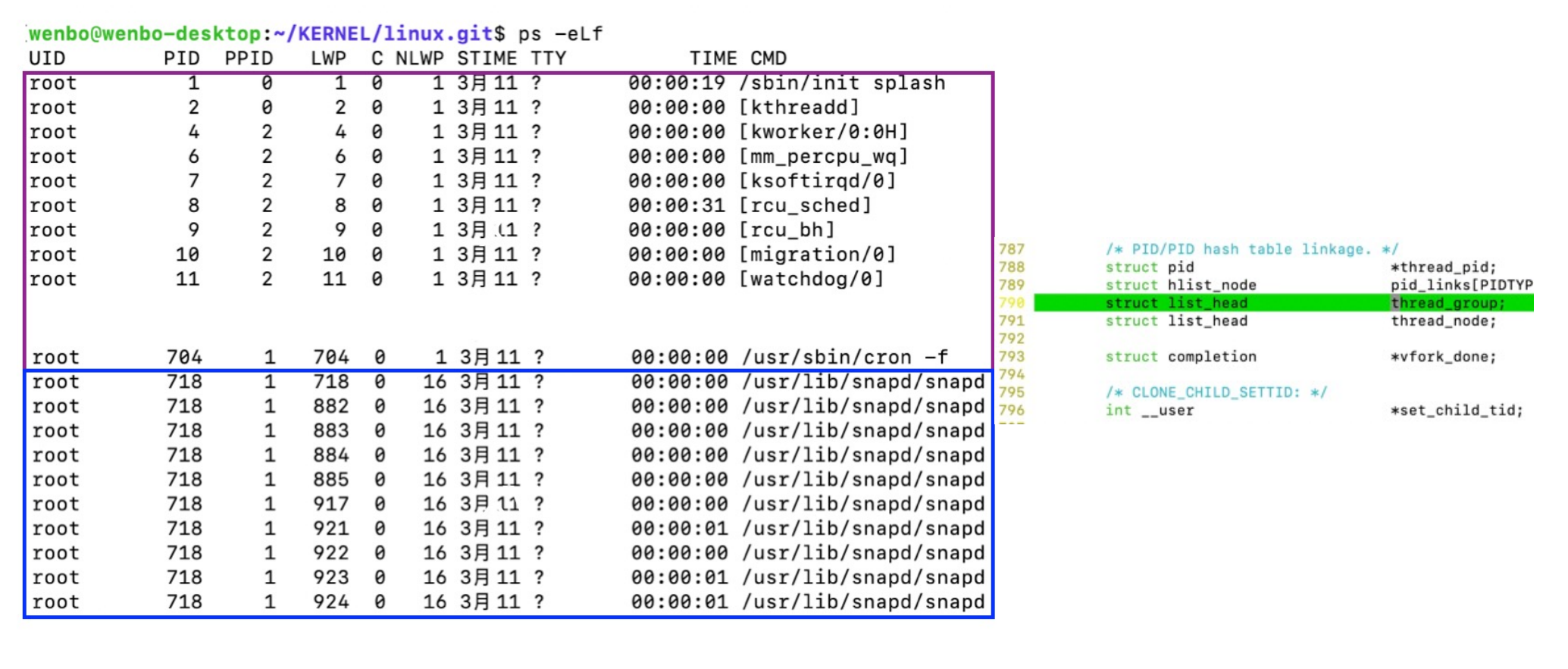Chap04 | Threads#
How can we make a process run faster
- Multiple execution units with a process

Thread Definition#
- A thread is a basic unit of execution within a process.
- Each thread has its own
- thread ID
- program counter
- register set
- Stack
- It shares the following with other threads within the same process
- code section
- data section
- the heap (dynamically allocated memory)
- open files and signals
- Concurrency: A multi-threaded process can do multiple things at once
Example

线程执行的代码很有可能不一样。
-
Advantages of Threads
-
Economy
-
Creating a thread is cheap
如果已经有了一个线程,那么我们创建新的线程只需要给它分配一个栈。Code,data,heap 都已经在内存里分配好了。
-
Context switching between threads is cheap
Cache is hot, no need to cache flush. * Resource Sharing * Threads naturally share memory
不需要 IPC。
-
Having concurrent activities in the same address space is very powerful
- Responsiveness
如在 web server 中,一个线程在等待 I/O,当有请求来时就再分配一个线程去处理。(进程也可以,但是代价更大)
-
-
Scalability
- multi-core machine
-
-
Drawbacks of Threads
-
Weak isolation between threads
如果有一个线程出错,那么整个进程都会出错。
-
-
Typical challenges of multi-threaded programming
- Deal with data dependency and synchronization
- Dividing activities among threads
- Balancing load among threads
- Split data among threads
- Testing and debugging
User Threads vs. Kernel Threads#
如果内核不知道你这个 user thread,完全在 user space 执行,就是 user space-based thread; 如果内核知道你这个 user thread,就是 kernel-based thread。
-
Many-to-One Model
缺点:内核只有一个线程,无法发挥 multi-core 的优势;一旦一个线程被阻塞,其他线程也会被阻塞。

-
One-to-One Model
把线程的管理变得很简单,现在 Linux,Windows 都是这种模型。

-
Many-to-Many Model
m to n 线程,折中。缺点是太复杂。

-
Two-Level Model
可以选择 many to many 或者 one to one。

Thread Libraries#
- In C/C++: pthreads and Win32 threads
- In C/C++: OpenMP
- In Java: Java Threads
Pthreads#
Specification, not implementation
只要符合接口的定义,就可以叫 pthreads。
Example


OpenMP#
Identifies parallel regions – blocks of code that can run in parallel
Example
使用之后编译器会为我们切分出若干个并行块,创造出对应的线程,最后使用 join 把线程合并。
Java Threads#
- Java threads may be created by:
- Extending Thread class
- Implementing the Runnable interface
Example
Threading Issues#
线程的加入让进程的操作变得更复杂。
Semantics of fork() and exec()#
如果一个线程调用了 fork(),可能发生两种情况:只复制调用线程,或者复制所有线程。
Some OSes provide both options
-
In Linux the first option above is used
因为大部分时候
fork之后会接exec,抹掉所有的数据,因此直接复制调用线程就可以了。
Signals#
信号是给一个线程,给所有线程,给一个固定的线程还是用一个特定的线程来处理信号?
Most UNIX versions: a thread can say which signals it accepts and which signals it doesn’t accept.
On Linux: dealing with threads and signals is tricky but well understood with many tutorials on the matter and man pages
Linux把这个部分提供接口给用户,让用户自己来处理。
Safe Thread Cancellation#
把一个线程的工作取消掉,如何保证取消后不影响系统的稳定性。
-
Asynchronous cancellation
立即终止。
-
Deferred cancellation
线程会自己进行周期性检查,如果取消掉不会影响系统的稳定性,就把自己取消掉。
Invoking thread cancellation requests cancellation, but actual cancellation depends on thread state.

带来很多问题:比如一个线程正在写变量,值还没有同步到内存或者 cache,这个 bug 很难被复现。
In Java, the Thread.stop() method is deprecated, and so cancellation has to be deferred.
Linux Threads#
In Linux, a thread is also called a light-weight process(LWP).
The clone() syscall is used to create a thread or a process.
Note
clone 有一个参数 CLONE_VM,如果不设置那么类似于 fork,每个线程都有自己的内存空间;如果设置了那么线程跑在同一地址空间上。
注意线程能访问到其他线程的栈,也能读写,只是正常使用情况下是用的自己栈。
TCB 用来存储线程的信息,Linux 并不区分 PCB 和 TCB,都是用 task_struct 来表示。
Example

PID 如果和 LWP 相同,说明这个进程只有这一个线程。如果不相同,说明进程有多个线程,此时进程的 PID 是主线程的 LWP。
A process is
- either a single thread + an address space
- PID is thread ID
- or multiple threads + an address space
- PID is the leading thread ID
Threads with Process – What is shared

可以看到 mm_struct (与内存管理相关的信息,如页表,vm_struct)是共享的,task_struct, pid, stack, comm(一般来说是一样的,但是因为是数组所以不共享) 是不共享的。
PID stack 是0x4000(16KB)对齐
- One task in Linux
- Same task_struct (PCB) means same thread(一个 PCB 指的是一个线程)
- Also viewed as 1:1 mapping
- One user thread maps to one kernel thread
- But actually, they are the same thread
- Same task_struct (PCB) means same thread(一个 PCB 指的是一个线程)
- Can be executed in user space
- User code, user space stack
- Can be executed in kernel space
- Kernel code, kernel space stack
例如我们使用了一个系统调用,线程切换到内核模式,相当于是用户线程对应的内核线程在执行,此时就使用内核空间的栈。
Takeaway#
Takeaway
- Thread is the basic execution unit
- Has its own registers, pc, stack
- Thread vs Process
- What is shared and what is not
- Pros and cons of thread
Created: 2024年9月17日 14:52:21